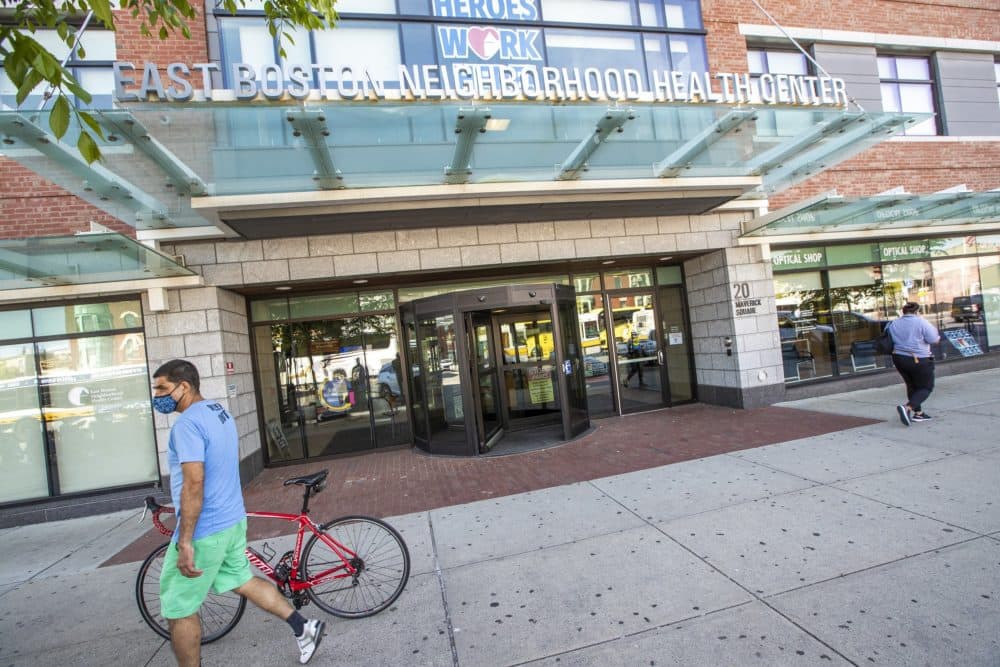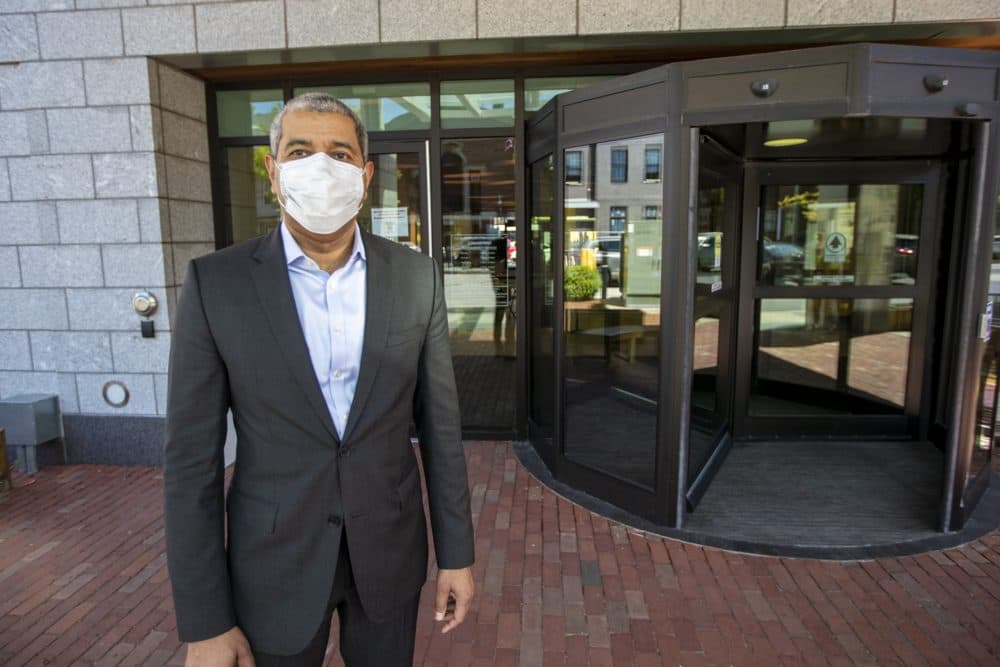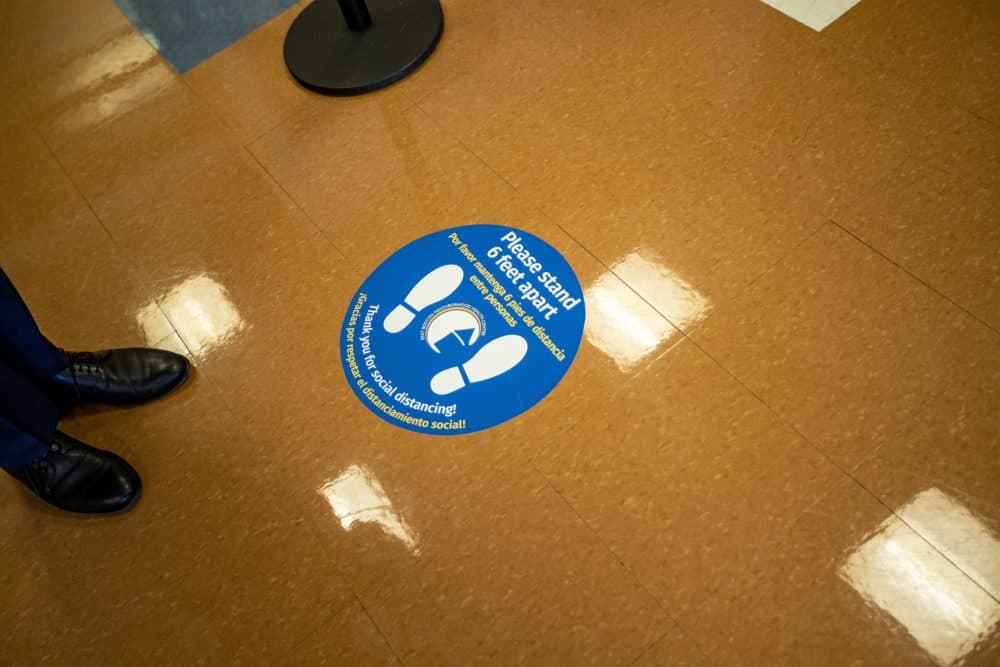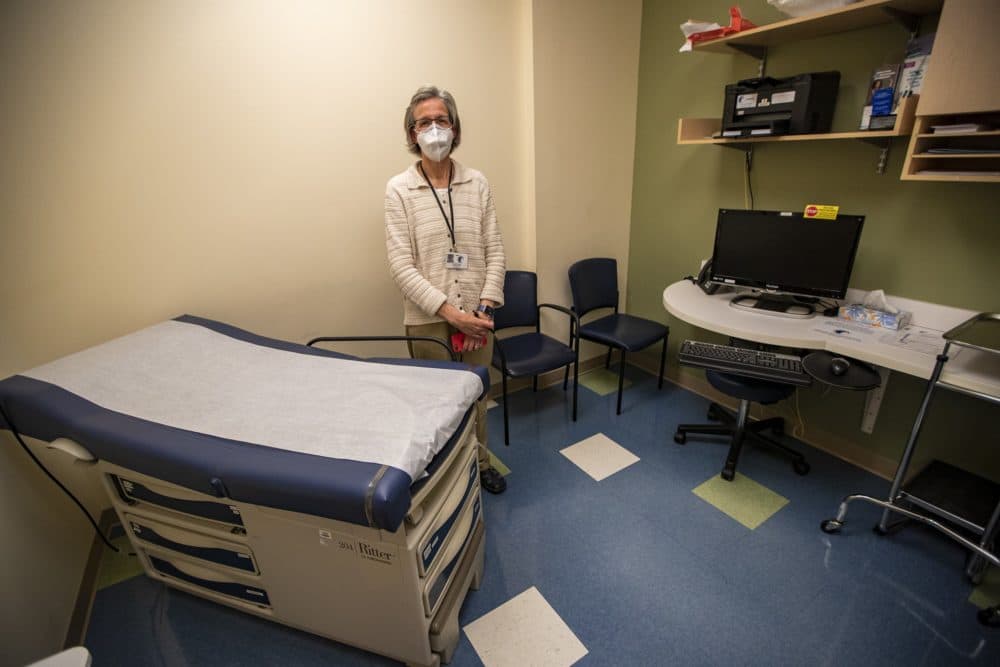Advertisement
Coronavirus Coverage
Here's What To Expect As Mass. Doctors Reopen For Routine Medical Care

Going to see your primary care provider, having an MRI or a colonoscopy, and being admitted to a hospital — all of these experiences will be different now on because of the coronavirus. Patients will be screened in advance for symptoms and may be tested. They may get a text when their exam room is ready, bypassing waiting areas if possible. And they will likely be asked to come to an appointment alone.
Health care centers and hospitals are the first facilities in Massachusetts to roll out these changes, following Gov. Charlie Baker’s reopening plan. The state’s largest health care center, the East Boston Neighborhood Health Center, with more 300,000 visits a year, launches its plan for a new normal today.
The changes begin when a patient schedules an appointment at the East Boston Neighborhood Health Center. That call will trigger a text that links patients to online registration forms and questions about whether they have any symptoms of the coronavirus. The link will also create notifications.
“In the very near future, your locator on your phone would ping us that you’ve entered our facility, either in the parking lot or walked into our building,” says the center’s president and CEO Manny Lopes. “That would notify our department that you’re here for your appointment.”

But before a patient can head for that appointment, they must be cleared for entry. That happens at a screening station at every entrance. There are masks for anyone who didn’t bring their own. The EBNHC allows patients to wear a homemade mask but many hospitals will not.
At this screening station, there’s a temperature check. Patients who have a fever or symptoms of COVID-19 will be directed to a special clinic. Those who don’t can proceed to an elevator. Only two people will be allowed on at a time.
Managing elevator traffic may be difficult with the 6-foot distancing rule. If there’s not enough space to spread out patients who are waiting, some doctors say they still aren’t sure if it’s safer to violate the rule for a few seconds inside an elevator or in a crowded hallway. That’s one of many elements that make these reopening plans a work in progress.
After a short ride on the elevator, the doors open to face a registration desk. The floor in-between is dotted with blue circles. Each has a pair of feet in the middle and a reminder about social distancing. The assumption is that patients will have already registered, via that link sent to their phones, and they’ll spend very little time standing on these circles. The plan is to have a staff person who received a notification the patient had entered the building waiting for them at the elevator.
Advertisement
“The aim is to get patients into an exam room as fast as possible,” says Dr. Mothusi Chilume, medical director for the Department of Family Medicine at the center.

Chilume’s staff has been racing to prepare for today. During the COVID-19 surge, this floor became the sole destination for all children and adults who had to be seen but who did not have the coronavirus. Sick patients were directed to another building. Now the center has dismantled that system.
Chilume and his colleagues aren’t sure what to expect once the doors open for more patients today. Does the center need to reserve a lot more time for same day sick visits? Will patients want to come in, or will they prefer to stick with telemedicine? The center is expecting about 25% of visits to be in person in this first phase of reopening and 75% to be on the phone or in a video chat.
“We’re kind of re-inventing things,” says Chilume. “If we open the flood gates, it’ll quickly overwhelm us, so we want to start it off slow and build it up as we feel more comfortable that we’re all on the same page.”
Traffic in the halls lined with exam rooms is now one-way to minimize contact between patients and staff. To reduce crowding in exam rooms, patients will be urged to come alone unless they need a companion for assistance. Some health care facilities say providers will be strict about not spending more than 15 minutes in small exam rooms with patients, but the risk of transmission is lower with both people masked.
Dr. Jackie Fantes, EBNHC’s chief medical officer, says patients do not need to be afraid to come visit their doctor. Fantes has been doing Facebook Live events and other public outreach to stress this message: “Please come get the medical care that you need.”

Baker’s phase one goal for hospitals and health care centers is to address deferred care that needs immediate attention. Dr. Catherine Silva, the center’s medical director for adult medicine, says telemedicine has been a great way to stay in touch with patients, but there are lots of patients she can’t assess in a phone or video chat.
“People who are concerned about lumps, abdominal pain, pelvic pain and headaches,” says Silva, “conditions where your physical exam is going to be important to narrow your diagnosis and rule out things that would be very concerning.”
The East Boston Neighborhood Health Center plans to bring in as many of these patients as possible while still dealing with a higher number of COVID-19 patients than many other parts of the state. Of the patients tested at the health center last week, 29% tested positive for the coronavirus, more than three times the current state average. Lopes says patient needs and demand will determine how quickly the center fills with more routine care.
“Unfortunately, it’s not a light switch, it’s more like a dimmer switch. We’ll dial that up slowly, similar to what the state’s doing and what the city’s doing,” Lopes says.
In the midst of all this juggling, Lopes is still trying to figure out how to cope with a $5 million loss to date, for all the care patients have postponed since mid-March.
A study out of Harvard offers some guidance about how quickly patients are likely to come back for in-person office visits. It shows that 50% of postponed care across the country returned over four weeks after a low in early April. But study co-author, Dr. Ateev Mehrotra expects that in Massachusetts the rebound may happen more slowly.
“We still have hundreds of patients in the hospitals with COVID,” he says, “so we’re going to have to be a bit more careful than they are in other areas of the country where there’s fewer visits.”
This segment aired on May 26, 2020.
